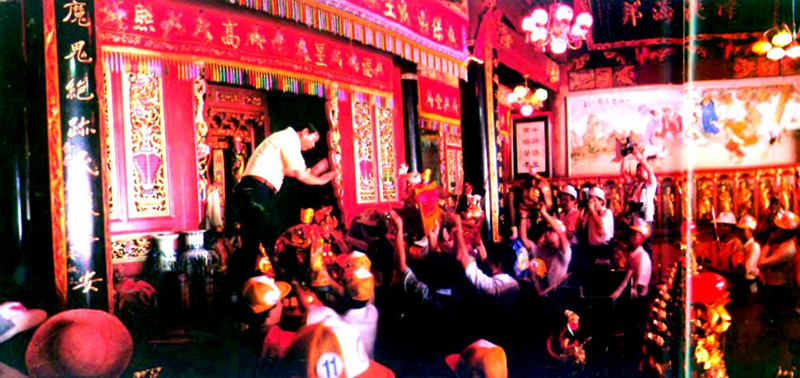
Devotees gather in Baosheng Dadi temple. [Photo/fujian-szwhg.chaoxing.com]
The worship of the Baosheng Dadi (Chinese God of Medicine), a tradition prevalent in Minnan regions, as well as Guangdong, Guangxi, and Taiwan, has been recognized as a national intangible cultural heritage item in the folk customs category.
Born in Tong'an county during the Northern Song Dynasty (960-1127), the Baosheng Dadi (originally named Wu Tao) was revered for his exceptional medical skills, earning him the title "Divine Physician". After his death, people spontaneously built temples and statues to worship him, leading to his official deification as Baosheng Dadi in 1419.
Baosheng Dadi worship customs center on rituals and divination. Devotees visit Baosheng Dadi temples to pray and seek medicinal advice through divination sticks, following prescribed herbal remedies for common ailments.
As a local deity in the Minnan region, the Baosheng Dadi's teachings emphasize moral values such as promoting kindness, healing the sick, and respecting elders and children. The medicinal advice provided through divination sticks aids in treating illnesses, while divination sticks offer guidance in resolving difficulties and uncertainties. Through these practices, devotees seek spiritual peace and physical well-being.
The influence of the Baosheng Dadi worship extends widely both domestically and internationally, particularly in Taiwan, where it fosters cross-strait cultural exchanges between Fujian and Taiwan.

Copyright © General Office of Fujian Provincial People's Government
Website Identification Code 3500000049Registration Number: 15003084
All rights reserved. The content (including but not limited to text, photo, multimedia information, etc) published in this site belongs to fujian.gov.cn.
Without written authorization from fujian.gov.cn, such content shall not be republished or used in any form.